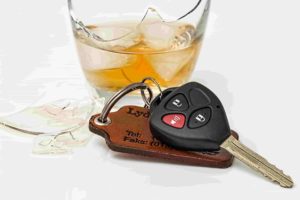Every state imposes severe penalties for drinking and driving because operating while under the influence (OWI) does not only endanger those who do it but also everyone on the road around them. In Iowa, for example, there are criminal, administrative, and financial consequences of an OWI or DUI conviction.
Most people are familiar with the criminal penalties and at least some of the administrative repercussions because they learned about them in driver’s education. Depending on your circumstances, though, the financial penalties could actually cause the most stress.
In the state of Iowa, a first-time offender can expect to owe a fine of $1,250. A second-time offender will face a fine of between $1,875 and $6,250, while a third or subsequent offender will owe between $3,125 and $9,375.

A DUI or OWI conviction in Iowa can cost you up to $9,000 in fines alone.
Of course, these fines are only the criminal penalties for operating while under the influence of drugs or alcohol. Individuals who are convicted of OWI or DUI must also cover hefty administrative fees, which might include the maintenance of an ignition interlock device, and higher car insurance rates for years to come.
Car Insurance Companies Consider Drivers with a DUI or OWI to Be High Risk
At the end of the day, insurance providers consider those who have a history of drinking and driving to be high-risk policyholders. As a result, they can expect to pay considerably more in coverage.
As long as you must file an SR-22 form, your car insurance rates will be higher than normal. People often refer to SR-22 as a kind of insurance, but it is actually a certificate that high-risk drivers must obtain from their provider to demonstrate their financial responsibility to the Iowa Department of Motor Vehicles.
An SR-22 certificate confirms that the policyholder has purchased at least the minimum required liability coverage. Under Iowa Code 321, that includes:
- $20,000 in bodily injury per person;
- $40,000 in bodily injury per incident; and
- $15,000 in property damage per incident.
Motorists in Iowa are also required to purchase $20,000/$40,000 in bodily injury coverage following a collision with an uninsured or underinsured motorist; however, they have the right to waive this coverage by signing a form provided by their auto insurance company.
An OWI conviction is not the only reason someone might need to obtain an SR-22 form after purchasing the mandatory minimum insurance. In general, anyone who wants to reinstate their license following a suspension will need to request proof of financial responsibility from their insurance provider.
For example, individuals who accumulated too many points on their driving record from multiple traffic tickets also need an SR-22 form, as do those whom authorities have caught driving without insurance. Typically, you must request an SR-22 form every time you renew your policy for as long as it is required by law.
The total duration will depend on the reason for the license suspension in the first place. In most cases, OWI offenders can expect to need an SR-22 certificate for two years following the date their license is reinstated.
After two years has passed and you no longer need this form, your rates may decrease slightly; however, since an OWI conviction will remain on your record for 12 years, you can expect to pay more for insurance than you did prior to the conviction.
As long as the insurance company considers you a high-risk driver, they are going to charge you more for coverage. If you shop around and opt for a high deductible, though, you may still be able to find fairly affordable car insurance in Iowa.
Unfortunately for many offenders, the lasting financial repercussions are not the worst of the penalties they face. First-time OWI offenders in Iowa also face up to one year in jail and a 12-month license suspension. Second offenders face up to two years in prison with a two-year license suspension, and third-time offenders could get five years in prison and a six-year suspension.
